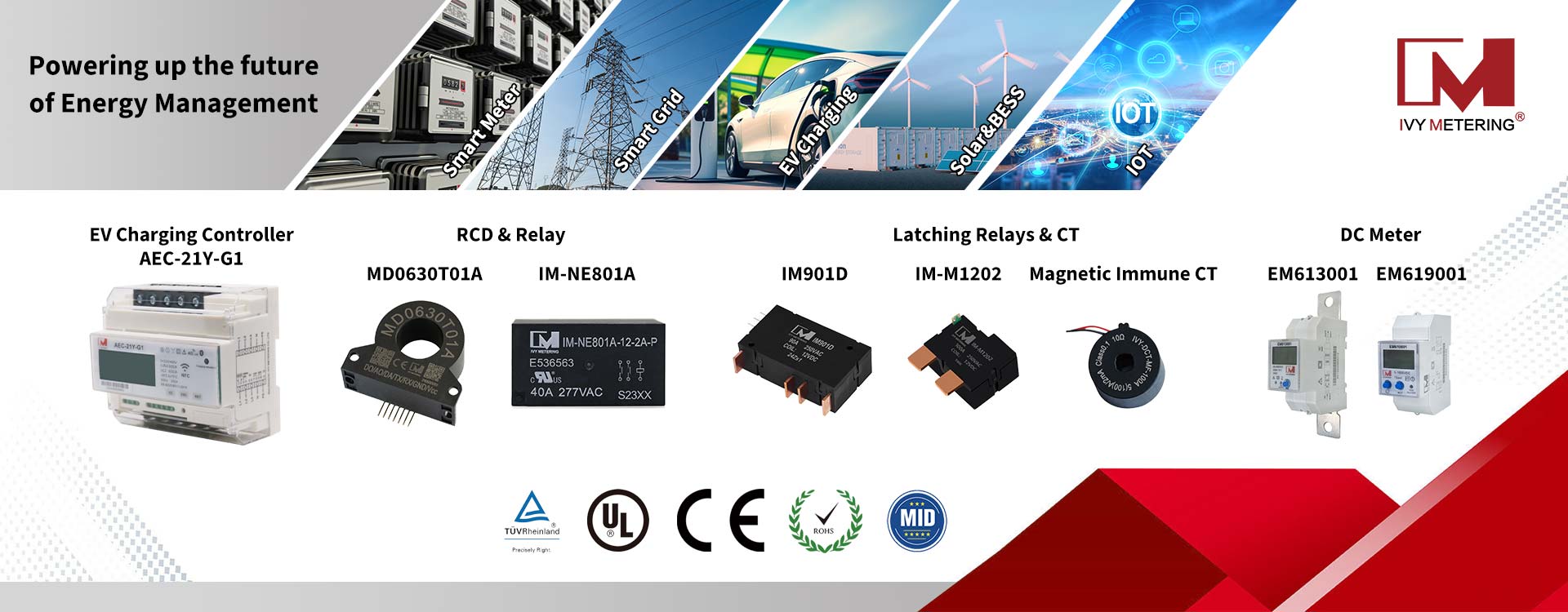What type of RCD should I choose in the EV Charger
Nobody wants to be injured or electrocuted during electrical vehicle (EV) charging. EV users probably know that Residual Current Devices (RCDs) is the last line of defense that protects people from electrical shock. However, most of EV users don’t know if the RCD installed out of their EV charger can provide sufficient electrical protection. For non-professional users, this blog post introduces how to select the right type of RCD installed outside the EV chargers at home.
The standards of IEC/EN 61851-1: 2017 and IEC 60364-7-222:2018 specify the protective measures for mode-3 EV charging system (a wall mounted AC charging box installed at is usually a mode-3 EV charger) as followings:
Option 1: RCD Type B (IEC 60947-2 type-B mRCD/CBR or IEC 62423 type-B RCCB)
Option 2: RCD Type A (IEC 61008-1 type-A RCCB, IEC 61009-1 type-A RCBO or IEC 60947-2 type-A mRCD / CBR ) and RDC-DD (IEC62955 RDC-PD or RDC-MD)
In the datasheet of your EV charger, one of the following type of integrated residual current protection is often declared
Type-A 30mA RCD (IEC 61008-1 / IEC 61009-1 / IEC 60947-2)
Type-A 30mA RCD(IEC 61008-1 / IEC 61009-1 / IEC 60947-2) + RDC-PD (IEC 62955)
RDC-MD (IEC 62955)
Type-B RCD (IEC 62423 / IEC 60947-2)
Some EV charger manufacturers might declare only AC 30 mA & DC 6 mA compliancy without mentioning the RCD & RDC-DD standard. In this case, please contact the EV Charger manufacturer for further clarification. In the worst scenario of no clarification received from the manufacturer, please consider installing an integrated type-A RCD and RDC-DD) or type-B RCD outside your EV charger.
MD0630T01A is a 6mA DC/30mA AC type-AC/A/B RCD with monitoring for use in electric vehicle chargers. Compact RCD that provides residual current protection, with a sensitivity of 30 mA and 6 mA DC monitoring for use in electric vehicle charging stations. Available in 16 32 40 and 63 A nominal current gauges, for three-phase and single-phase connections. It guarantees adequate protection at electric vehicle charging points, in accordance with the IEC 62955 standard and TUV/CE certification.












